Nutrition Basics
Nurtions are borken down into to major classes - micronutrients and micronutrients. Micro and macro nutrients are essential components of a balanced diet, each playing distinct roles in supporting overall health and well-being.
Macronutrients: Macronutrients are nutrients that the body requires in relatively large quantities to function properly. There are three primary macronutrients:
Carbohydrates: These are the body's main source of energy. They are broken down into glucose, which fuels various bodily functions and activities.
Proteins: Proteins are crucial for building and repairing tissues. They are made up of amino acids, which are essential for numerous physiological processes, including muscle development and immune function.
Fats: Fats serve as a concentrated source of energy and are vital for the absorption of fat-soluble vitamins (A, D, E, K). Healthy fats are also essential for brain health and hormone production.
Micronutrients: Micronutrients, as the name suggests, are nutrients required in smaller amounts but are equally essential for various physiological functions. They include:
Vitamins: These are organic compounds that play crucial roles in metabolism, immune function, and other physiological processes. Vitamins are classified as water-soluble (e.g., vitamin C, B vitamins) or fat-soluble (e.g., vitamin A, D, E, K).
Minerals: Minerals are inorganic elements necessary for a range of bodily functions, including bone health, fluid balance, and nerve transmission. Common minerals include calcium, iron, magnesium, and zinc.
While macronutrients provide the energy needed for daily activities, micronutrients support specific biochemical processes and help prevent deficiencies and related health issues. A balanced diet that includes an appropriate combination of macronutrients and micronutrients is essential for promoting optimal health and preventing nutritional deficiencies.
Macronutrient
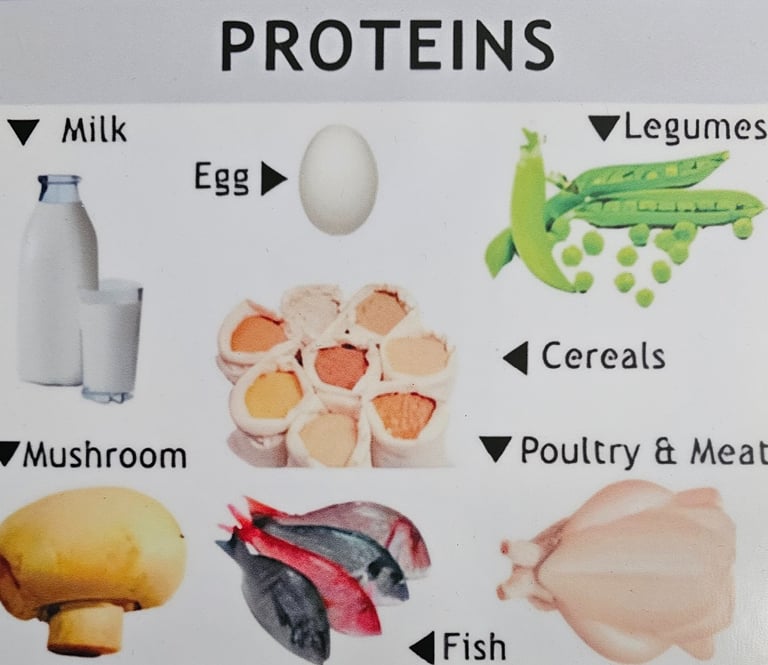

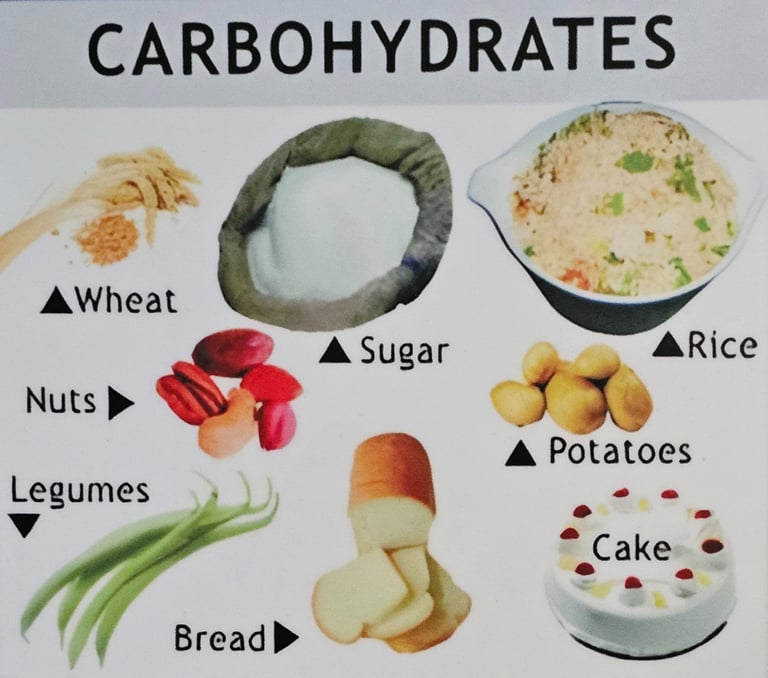

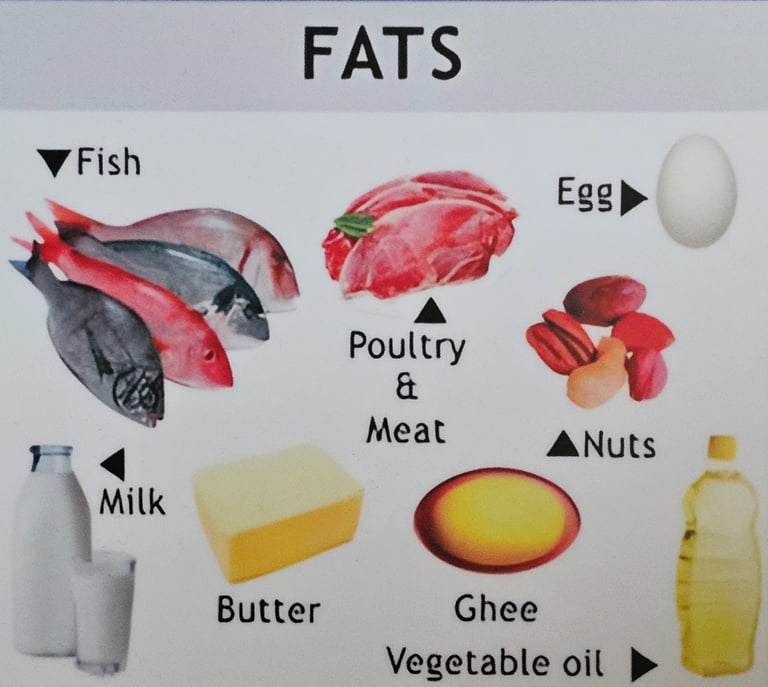

Necessary for building, maintaining, and replacing tissues. Essential for enzymes and hormone production. Help heal wounds and resist infection.
Deficiency causes: Mental and physical fatigue. Muscular weakness. Retarded growth.
For optimal health, a plant-based diet is highly recommended.
Supply energy for growth and activity. They are needed for proper utilization of other nutrients, especially proteins. Supply fat to the body.
Deficiency causes: Underweight. Fatigue and restlessness. Burning proteins for energy.
They are needed for the growth and replacement of specific tissues and sources of energy. Fats are essential for absorbing vitamins A, D, and E in the body.
Deficiency causes: Burning proteins for energy and vitamin deficiencies.
Micronutrient - Vitamins
For optimal health, a plant-based diet is highly recommended.
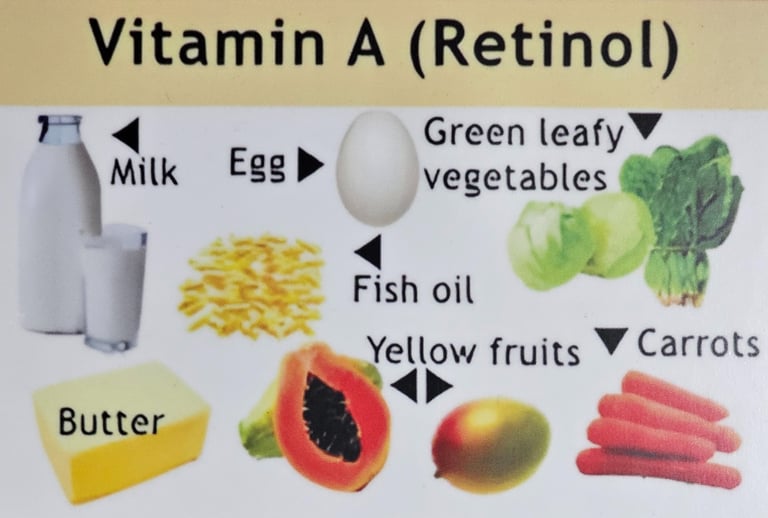

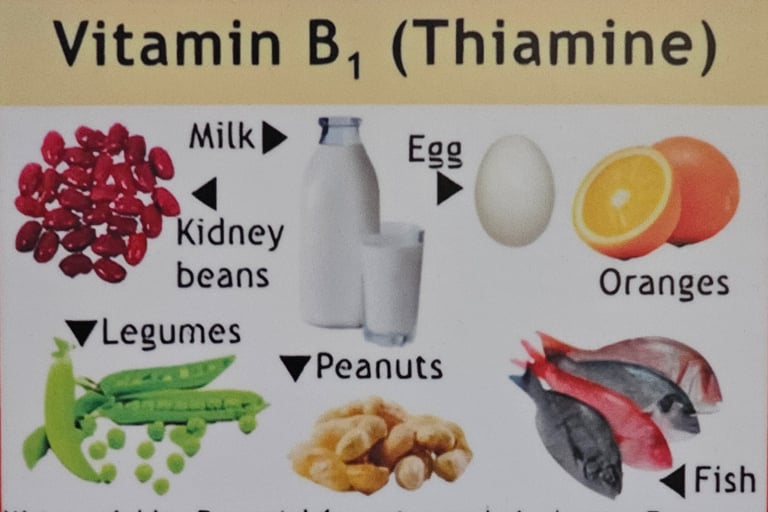

Fat-soluble. Essential for eyes. Necessary for growth and immunity.
Deficiency causes: Rought and dry skin. Retarded growth. Disease susceptibility. Night blindness.
Water-soluble. Essential for using carbohydrates. Aids proper intestine function.
Deficiency causes: Beri-beri, poor appetite, and constipation.
Water-soluble. Help maintain healthy eyes, skin, and nerve tissues. Facilitates protein and carbohydrate utilization in the body.
Deficiency causes: Itching and burning eyes, pale lips, and splitting at corners.
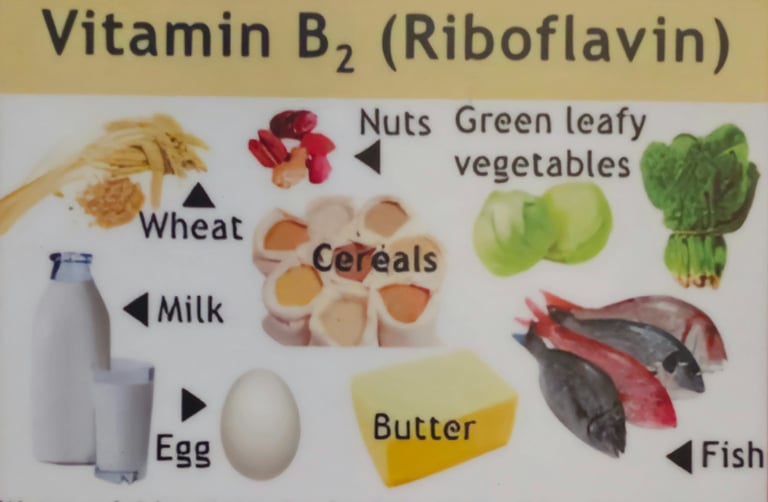

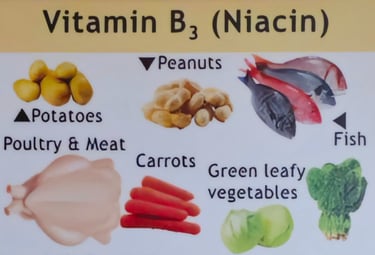

Water-soluble. Essential for growth. Immunity, healthy bones and teeth.
Deficiency causes: Rought and dry skin. Pellagra. Cataracts. Swelling of gums, mouth and tongue. Diarrhoea.
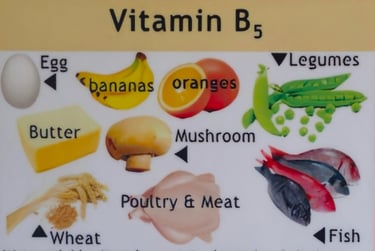

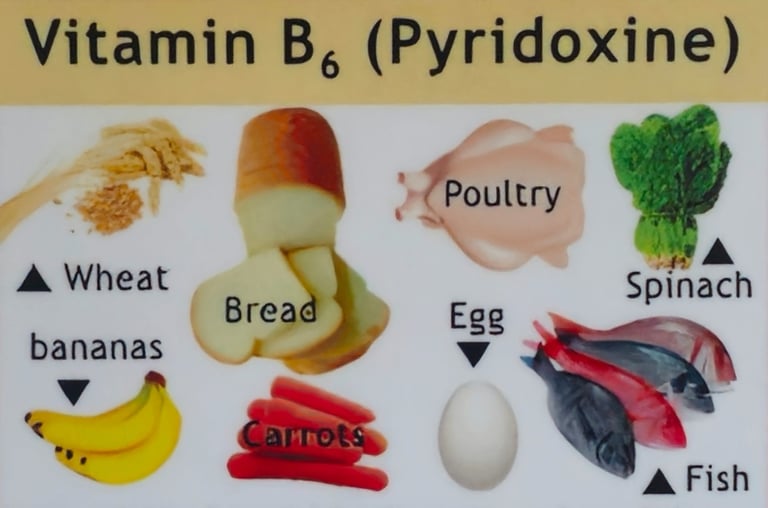

Water-soluble. Needed for protein, fat, and carbohydrate metabolism. Manufactured by intestinal bacteria.
Deficiency causes: Fatigue. Memory loss. Excess fat storage.
Water-soluble. Essential and metabolism of amino acids. Aids the formation of red blood cells (RBC).
Deficiency causes: Dizzines. Nausea. Skin disorders. Convulsions. Anemia.
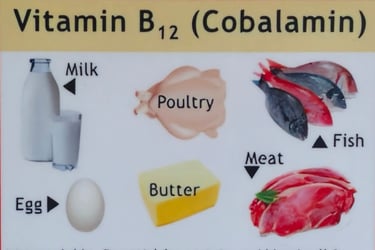

Water-soluble. Essential for protein, red blood cell, and nucleic acid synthesis.
Deficiency causes: Loss of intestinal epithelium. Pernicious anemia. Unhealthy nerve cells.
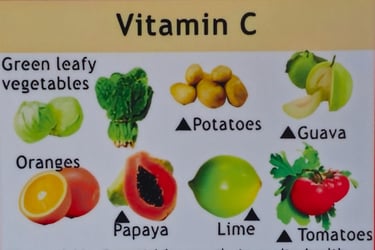

Water-soluble. Essential for protein, red blood cell, and nucleic acid synthesis.
Deficiency causes: Loss of intestinal epithelium. Pernicious anemia. Unhealthy nerve cells.
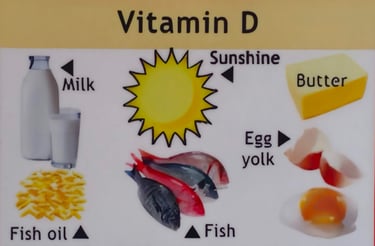

Fat-soluble. Essential for using calcium and phosphorous in the body. Essential for healthy bones and teeth.
Deficiency causes: Rickets. Poor teeth. Osteomalacia. Fat belly. Bow legs.
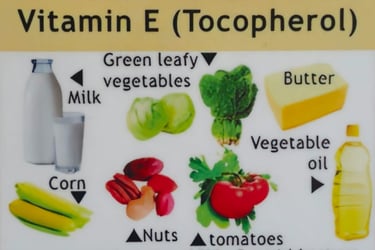

Fat-soluble. Aids formation of Red Blood Cells (RBCs). Essential for strong muscles. Prevents oxidation of vitamin A and fats.
Deficiency causes: Growth of RBC in bone marrow.
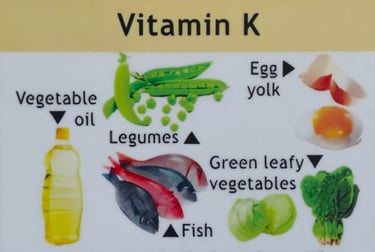

Fat-soluble. Necessary for blood coagulation. Aids production of fibrin needed for blood clotting.
Deficiency causes: Mild blood clotting disorder. Deficiency of prothrombin.
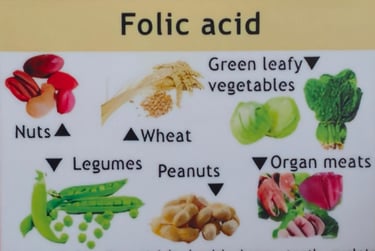

water-soluble. Essential for healthy bones, teeth, nucleic acid metabolism. Aids protein and hemoglobin synthesis.
Deficiency causes: Diarrhoea. Anaemia, neural tube defects.
Micronutrient - Minerals
For optimal health, a plant-based diet is highly recommended.
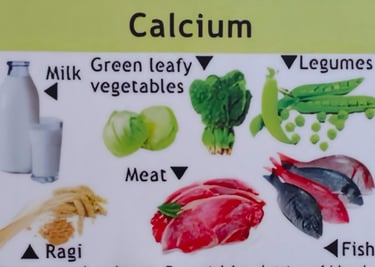

Gives strength to bones. Essential for clotting or blood and movement of muscles.
Deficiency causes: Fatique. Poor digestion. Stunted growth. Bone deformities. Ostenomalacia in women.
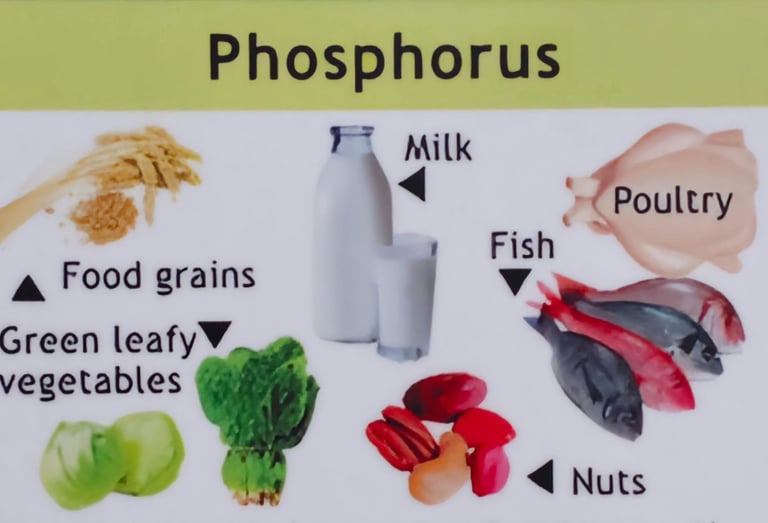

Formation of healthy bones and teeth. Maintains acid-base balance in the body.
Deficiency causes: Loss of calcium. Poor dentition. defects in enamel.
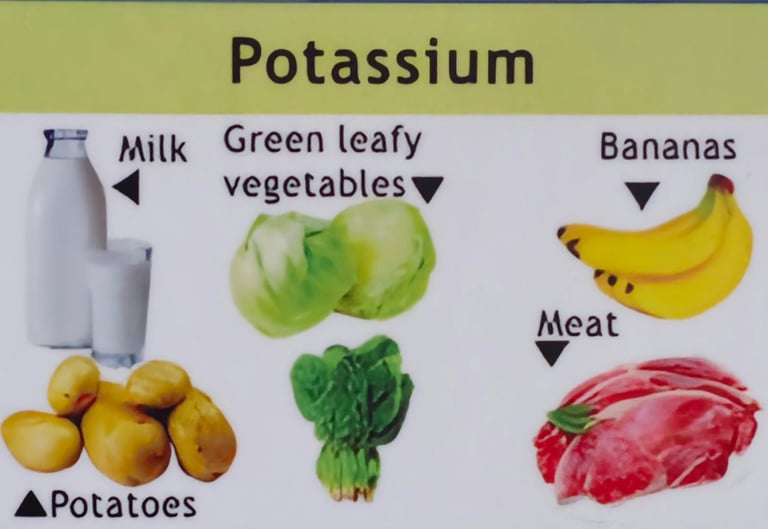

Essential for neural transmission. Maintains fluid acid-base balance in the body.
Deficiency causes: Muscle cramps. Mental confusion. Loss of appetite. Irregular cardiac rhythm.
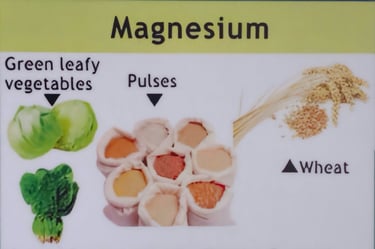

Essential for nerve activation. Necessary for protein synthesis.
Deficiency causes: Cardiac arrhythmia. Convulsion. Spasms. Rickets and osteomalacia.
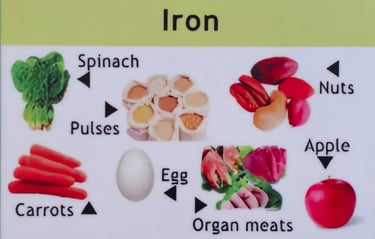

Essential for blood and body cells. Give color to the blood.
Deficiency causes: Lack of blood and look of paleness due to nutritional anemia. Retarded growth in children. Susceptibility to diseases. Poor appetite.
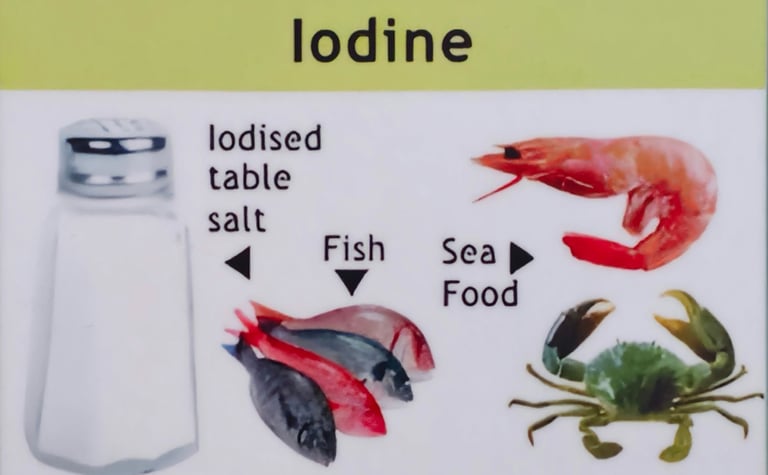

Essential for proper functioning of thyroid glands.
Deficiency causes: Swelling of thyroid glands in goiter. Cretinism or deformity in children.
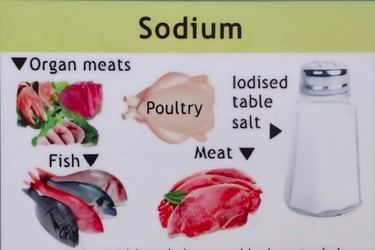

Necessary acid-base balance and body water balance in the body. Essential for proper nerve fucntion.
Deficiency causes: Muscle cramps. Reduced appetite. Mental apathy.
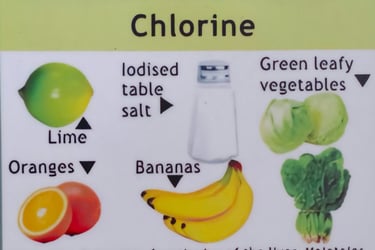

Necessary for the proper functioning of the liver. Maintain acid-base balance and body.
Deficiency causes: Acid-base imbalance in the body (very rare).
